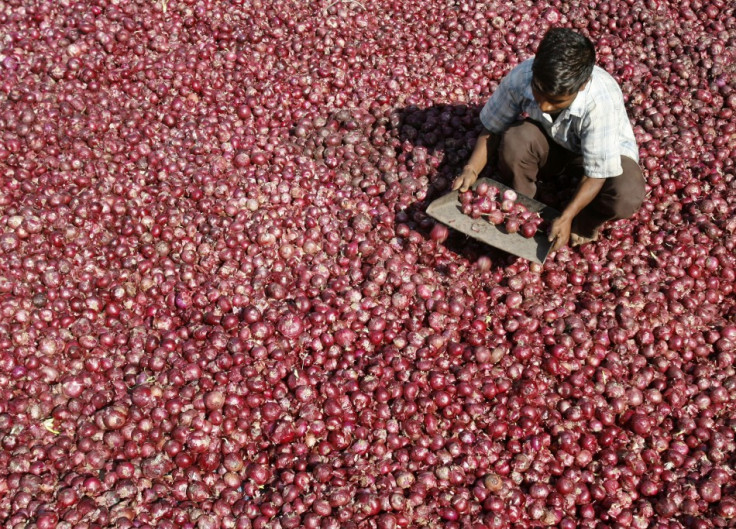India Slaps Eye-Watering Export Levy on Onions in Bid to Curb Food Inflation

In a move designed to curb domestic food inflation, India's government has increased the minimum export price of onions by 67%, to $500 (£291, €366) per tonne.
The government will also open stalls on municipal premises to sell onions and potatoes to the public at wholesale prices.
It marks the second intervention in as many months, after Delhi increased the minimum export price of onions to $300 a tonne in June.
The policies come amid fears over a domestic shortage of onions due to abnormally mild weather conditions. The four-month monsoon season started in June and brought with it below average rains. Weather forecasters are predicting 7% less rain than usual.
This in turn is expected to result in reduced yield of onion crops. The government is acting to ensure there are adequate stocks for local supply, at affordable pricing.
Onions are one of the most commonly used ingredients in Indian cuisine, but also form a key part of the agricultural sectors exports base. In the average year, India produces 18 million tonnes of onions, with just under 10% leaving the country for overseas markets in 2013.
Onions have in some ways become a symbol of India's inflationary problems, with prices rising by over 50% in some parts of the country.
New premier Narendra Modi was elected earlier this year on the promise of freezing creeping inflation and restoring the country's manufacturing sector. He will be hoping the state intervention will help avoid a repeat of the onion crisis of 2010, when errant rainfall led to a countrywide shortage which was, at the time, described by former Prime Minister Manmohan Singh as a "grave concern".
A statement on the government's press bureau website read: "Keeping in view of rising retail and wholesale prices and delayed monsoon, the committee unanimously decided to fix the price at $500 per month, with a view to arresting domestic price rise and augment domestic supply."
© Copyright IBTimes 2025. All rights reserved.






















